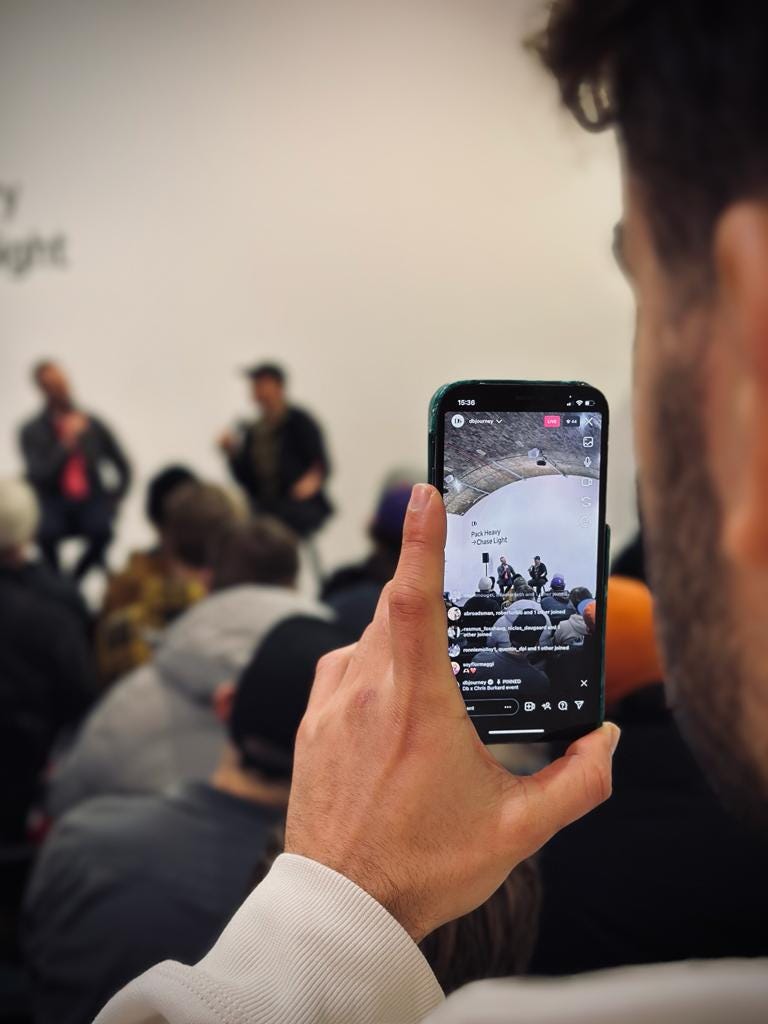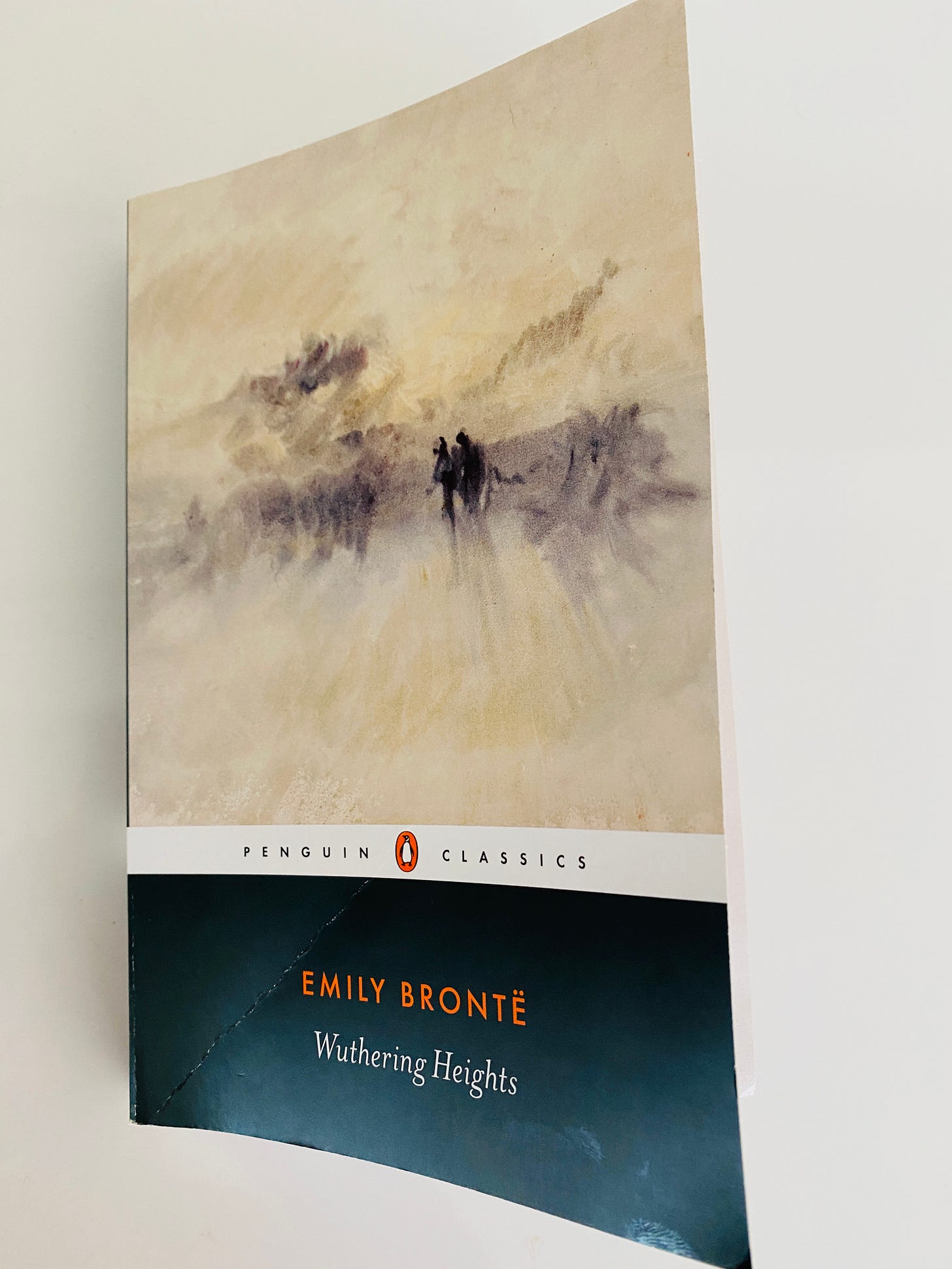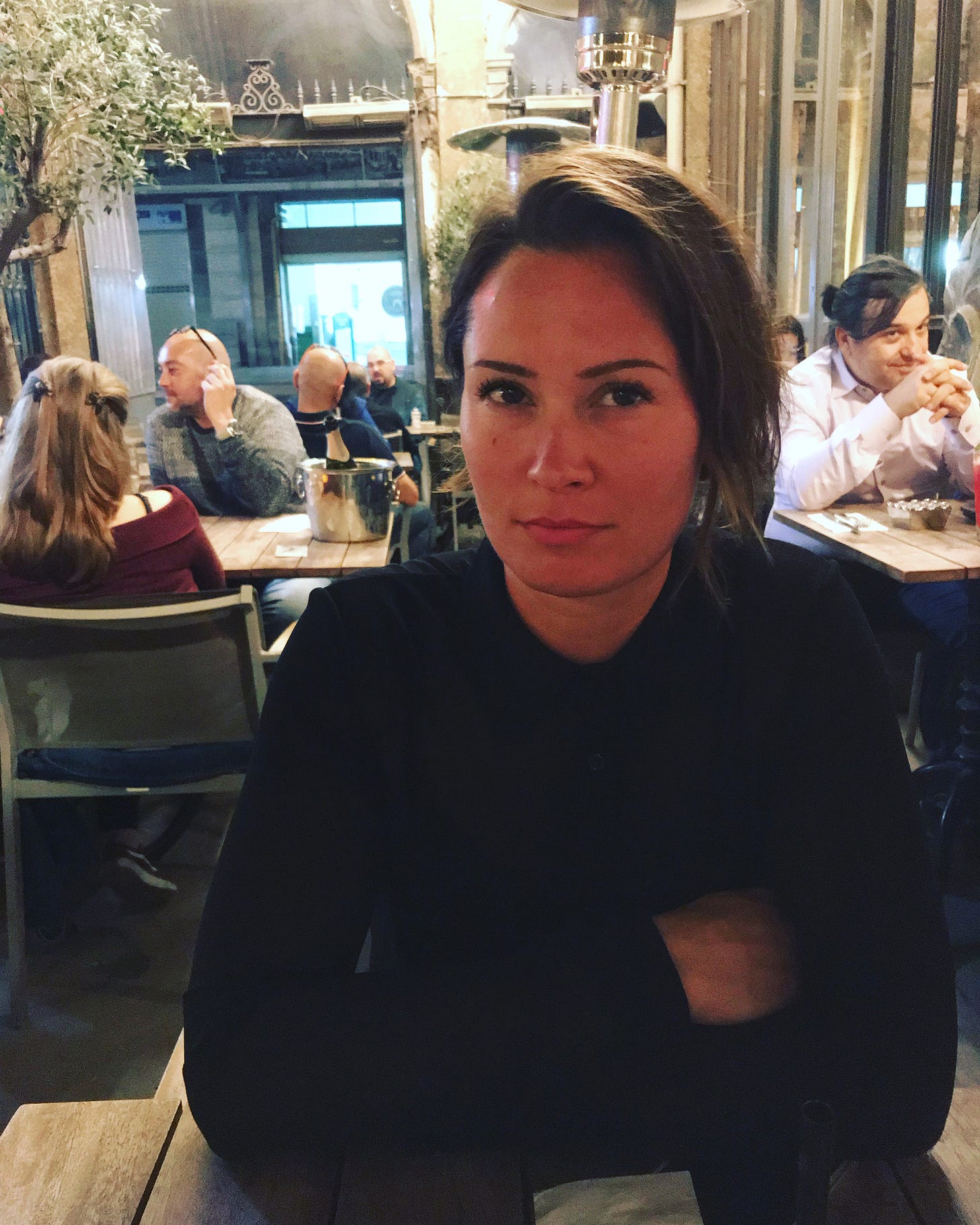How I Find Time To Read
A blog-length answer to a common question: 'Where do you find the time to read so much?'
Disclaimer: How’s that for a polarising blog title? If you’re not interested in reading, what follows will probably sound a bit mental. But this post is really just about reclaiming time so you can spend it doing something you value. Who knows what that looks like for you? This is what it looks like for me. Maybe you'll get something out of it. If not, have a nice day anyway.
Looking Sideways is proudly ad-free and reader and listener supported. Thanks to all my paid subscribers, who help keep the podcast and newsletter free for everybody. To support Looking Sideways with a free or paid subscription, click below.
As you’ll know if you follow me on Instagram, I love reading. Always have, always will. Growing up, if I was awake, I had a book in my hand. And if I wasn’t reading, I was thinking about what book I was going to read next, writing lists about what books I was going to read next (I still do this), buying books to read later, or stacking books up on every available surface. A cosy spot and a good book to block out the world? That’s my idea of a great time.
Then the internet came along and, without me realising, scrambled my brain to the point that my relationship with reading completely changed. At points, I basically stopped reading completely: which in terms of my mental health, would be a little like some technological innovation coming along and having a huge impact on me swimming, or surfing.
It took me a while to notice this. But when I did, I found it problematic on some weird, deeply emotional level. Reading had been so important to my internal equilibrium (and self-image, which is also definitely a thing) for so long, that I felt the lack of it keenly, as though a key part of my genetic make-up had suddenly and inexplicably gone AWOL.
So in 2018, I decided to make a conscious effort to sort this out and read more books. To keep me honest, I decided to post every book I read on Instagram Stories and save them in a Highlight. Geeky? Sure. (I also do this with music, like with the above Spotify playlist, where I save every song I hear that I like. That’s the ongoing 2023 version, above).
Performative? Depends on your viewpoint, I suppose. Certainly, after a while I noticed a couple of things.
Firstly, people are really, really weird about reading. Especially if you do a lot of it, and mention it publicly from time to time, like I do.
This isn’t news to me. At school, I copped a lot of shit for the amount of reading that I did. And sure enough, when I started posting the books I read on Instagram, I began to get comments suggesting that this was performative behaviour, I was basically showing off, trying to make other people feel inadequate, and so on.
Who knows why something as simple and as straightforward as reading a book elicits such a reaction in other people? Bill Hicks skewered the tendency perfectly in his classic ‘What are you reading for?’ sketch, above. (Imagine what Bill would have made of social media? Yes, I know a lot of Bill Hicks has dated appallingly badly, but still - what a loss). Andy Miller also writes very entertainingly on this topic, if you’re interested.
The second thing I noticed: by far the most common question I get whenever I post about a book I’ve read is ‘How do you find the time?!’ (Then again, I get asked that about making a podcast as well).
My throwaway answer is usually: ‘I get up early and I don’t have kids’. And there is some truth in that. But having given it some thought, I realised there’s a bit more to it. The aforementioned internet-brain-scrambling means that, whereas previously I could happily read pretty much anything, these days I have to be a bit more tactical and mindful about it. So I thought I’d write a short post about the ways I make it easier for myself to read more. And here it is.
1. Put down your phone
You knew this was going to be the first one, right? But the simple truth is that the time we ‘need’ for reading, creative projects, exercise (or whatever it is that’s niggling away at you), is right there and readily available.
Don’t believe me? Go and check the Screen Time readings on your phone. Ouch, right?
Now imagine exchanging a large proportion of that time for something else: like reading, for example.
Still, if only it was the simple, right? The problem is (and I realise I’m not exactly delivering breaking news here) that modern phones and apps are designed by the cleverest group of people on the planet to addictively suck your time away in a vanishing haze of doom scrolling - and turn it into cash (for them, obvs).
So ‘putting down your phone’ isn’t really enough. You also need to delete all your apps and turn off all of your notifications. Yep. All of them.
Personally, whenever I get a look at a friend’s home screen and see it full of notifications, I get the shakes. The only reason notifications exist is to try and get you back on the app more quickly. It really is that straightforward.
(This came up with a bunch of friends and colleagues in the pub the other night and they were all horrified, insisting that doing this would be a complete dereliction of duty. At the time, they were in London on a work trip.
“Have you been checking everything this trip?” I asked.
“No, we’ve been too busy and haven’t been online as much”.
“And did anything change or did anybody notice?”
“Er, not really, now you come to mention it”.
I rest my case.)
So ask yourself an honest question: is there really anything on email, WhatsApp, Instagram, Twitter, LinkedIn, Substack, TikTok, Basecamp, Slack or whatever so important you need to be constantly reminded of it?
Actually, there IS something that important: your kids and family. So pro tip: work out how to enable notifications for them, and turn the rest off.
Even then, if you’re like me, you’ll still find yourself periodically checking your phone as part of that weird rhythmic finger dance we all do at various points throughout the day. Mine goes something like this: WhatsApp > Insta > Guardian > Athletic (hey I’m a football obsessive) > Substack > email. And back to the start. Wow. Where did that 45 minutes go?
So I repeat: you’ll need to physically delete them all from your phone. If I’ve really got a proper reading game-face on, I’ll even delete my email and web browser apps as well, because I can still find myself checking Insta, emails and the rest on Safari even when I’ve deleted the actual apps.
I’ve tried apps like Freedom, which make it impossible for you to actually open the apps for a set period of time, but have ultimately found that deleting everything is the only thing that really works.
Of course, I go through phases with this (which, perhaps understandably, seems to be linked to my mental health). If I’m in a bit of a trough, I’ll delete them all. If I’m going on holiday, I definitely delete them all.
The point is this: taking control of your relationship with your phone is the simplest and most effective way of clawing back time for the things you actually want to do.
This isn’t to say, by the way, that I’m saying phones and social media are the work of the devil. Far from it. They’ve enriched my life in many ways - (not least by ensuring everybody has a portable podcast player on them at all times, and delivering my Looking Sideways podcast right there).
But I think we can all agree that resetting the relationship we have with the portable, addictive time-suck device we carry around with us at all times has got to be a good thing.
2. Choose books you think you’ll enjoy
They say you can only read a maximum of 4000 books in your lifetime.
When I first heard that stat, I was pretty flummoxed. I mean, Shakespeare wrote 38 plays. Barbara Cartland wrote a frankly bonkers 723 books. That’s almost 800 of your allotted tally on two writers alone, should you choose to dedicate your time to that particularly niche combo (hey, you do you).
Then there’s the fact that they reckon between 2 and 4 million books are published every single year.
Then I ran the numbers, and realised you’d actually be giving it some proper rice to get anywhere near 4000 books. You’d be reading around a book a week for 80 years, which for ordinary people with lives is clearly never going to happen, no matter how keen you are.
Which means it pays to choose wisely, especially when you’re got the internet with all its distractions beckoning you hither with a comely finger.
Personally, it has taken me over 40 years to learn this lesson. I’m an English Lit graduate, which means a tendency to choose ‘improving’ books is enshrined in my DNA. Why else would I have thought it was a good idea to reread Wuthering Heights last summer, a move that managed to derail my reading career by a couple of months?
In my case, I think self-image has a lot to do with this. For example, I’ve had copies of Bleak House and War and Peace on my bedside table for three years now. Why? Because in that best-version-of-myself we all internally carry around with us, I’m somebody who …. reads Bleak House and War and Peace. Ideally in some exotic location, where everything to-do on my list has been ticked off, there’s no internet access, and I have the luxury of dedicating a good couple of weeks to them. Which, if I’m being honest, is never going to happen. Aren’t humans weird?
Remembering this, and choosing stuff to read based upon reality, is one of the things that got me back on track. (And no, I still haven’t read Bleak House or War and Peace. I do have a holiday coming up though…)
3. Stop reading books you’re struggling with
All of which explains why its better to choose books and writers you know you’ll enjoy, so you have the best chance of finishing them.
Over the years, I’ve got much better at being honest with myself about this. The truth is, I like westerns, the American Civil War, Patrick Radden-Keefe, narrative non-fiction that reads like a thriller, historical fiction with a nautical slant, Bildungsromans and picaresques.
I also like finding a topic, becoming obsessed with it, and disappearing down a rabbit hole until I’ve read everything I can find (which is where the American Civil War obsession came from). I know I’ll usually enjoy that year’s Booker/Pulitzer/Samuel Johnson winners. And I love reading recommendations from book geeks pals (my old muckers Ben Mondy and Ewan Wallace are particularly good for a decent book reco).
Still, even when I’ve stacked the deck in my favour in this way, I can still come a cropper, as is the case at the time of writing. How so? Usually, I can read anything by English non-fiction writer Ben MacIntyre, who specialises in a modern take on the Boy’s Own, derring-do packed spy and military sagas I inhaled as a kid.
So when, on a recent visit to Waterstones, I saw one of his books that I’d somehow missed, I immediately bought it. (I love wandering around bookshops, incidentally. Can spend hours in there. I also have a weird rule that if I’m in Foyles, Stanfords or a decent independent bookshop, I have to buy something. Anyway…)
A month later, I’m still doggedly ploughing through it. What I should have done is put the thing down as soon as I realised I was struggling (about 50 pages in), and picked up the next book on the pile (Demon Copperhead, if you’re interested).
That’s what all the serious, ruthless readers recommend you do anyway. But I’m completely useless at lobbing a book without finishing it - even though it’s the one thing that can immediately derail my carefully fought-for reading practise.
Why? Take Wuthering Heights, which I mentioned earlier. The experience of reading it was definitely a slog that required more concentration than I was really prepared to offer it. Before I knew it, I was reinstalling Instagram on my phone, a month had passed, and I’d read about thirty pages.
So why didn’t I just lob it? I think in my case our old friend self-image has a lot to do with it. As you might be gathering from the slightly embarrassing Instagram book-list and Spotify playlist revelations, I’ve always had a weird, fastidious, curatorial/completer-finisher aspect to my character. Why else would I have spent five years compiling extensive Show Notes for every episode of my podcast when I had the data that told me that hardly anybody read them? Well, that wasn’t the point, thank you very much. Completely the task I had set myself was the point.
“He felt the satisfaction and leisure of the man who has organised so well that he is astride of time.” —R. C. Sheriff
It’s probably also why I like to-do lists so much, and why I keep coming back to the above quote. Weirdly, even masochistically: completing a task, however unpleasant, impacts me on some deep, cellular level; like taking a scouring pad to my grey matter, or ‘cleaning the mental plaque’, as a close friend of mine puts it.
What does it all mean? Fook knows, to be honest (although having written that paragraph, I’ll deffo be bringing it up with my therapist this Friday).
What makes it even odder is that, when it comes to reading, this tendency becomes an act of complete self-sabotage, and can properly hole my reading habit below the waterline.
From what I can gather, my struggle (lol) with this is pretty common, particularly among fellow English Lit grads who are used to spending weeks ploughing through books for the sake of finishing them.
One thing’s for sure: this is something I need to get way, way better at. Starting now. Sorry Ben. You’re being lobbed.
4. Carry books around with you
Like reading itself, carrying a book seems to have almost become a revolutionary and confrontational act. I realised this when I was on the train with a group of friends on the way to London the other year. We got on at Brighton, and I sat down and pulled a book out. One of my friends looked at me like she wanted to punch me in the face. “Trust you to have … brought a book!”
Guilty as charged. I do, indeed, like to carry books around with me. Why? So I can read them during the idle moments I’d usually be looking at my phone. It’s another easy win when it comes to making time for something other than phone-scrolling.
In my case, it should probably be: carry loads of books around with you. One of the habits that absolutely winds my wife up is my habit of packing about six books to take on holiday when we’re off away in the van for a week. “Get a Kindle”, she always says. “You can bring as many as you want, and you won’t be taking up so much room with a load of books you won’t read”.
She’s got a point, as she always does. But - nah. So why do I do this patently stupid thing? A few reasons, if I’m being honest. Firstly, I love books as a physical object, so any legitimate chance I get to sling a load of them in a bag, I’m going to take. Secondly, I like a choice, especially on holiday. Better safe than sorry. Thirdly, I do intend to read them all, at least initially. Finally, I just don’t enjoy the experience of reading on an e-reader.
Lord knows I’ve tried, but for me reading a book on a digital screen just isn’t the same as reading an actual book. I’ve asked loads of bibliophile pals about this and it seems this is surprisingly common, although I know people get equally passionate about their Kindles.
So for me the answer is always going to be to carry around a physical book with me, and reach for that instead of the phone whenever the opportunity arises. And, if you’ve chosen wisely, you get the added bonus of time ceasing to exist as an artificial construct while you immerse yourself in the new universe of language, mood, story and emotion created by the author of the book you’re reading. Pretty neat, right?

5. Carve out some time and space
As in: literally carve out some space and time. We’re in well-worn creative life-hack territory here, and this is really about how you mindfully cultivate an action until it becomes a habit. I do think that word ‘mindfully’ is key here, as much of a modern cliche as it is, and it applies to anything you want to set aside time for; whether that’s reading, writing a novel, learning the piano, going to the gym or whatever.
How does it work? Well - and forgive me while I reveal one of the secrets of the universe here - you basically have to set aside some time to do the thing you want to do. And have the self-discipline to stick to it. Do that often enough, and for long enough, and you’ve got yourself a habit. (And hopefully, a massive completed book-pile). That’s, er, it.
For me personally, the two prime moments of reading real estate are first thing in the morning and last thing at night. Very early in the morning is best, because there’s literally nothing else happening (especially if you’ve not grabbed your phone), and it comes with the added virtuousness that always comes with an early start (shallow, but definitely a thing. And I’ll take the small victories where I can get ‘em).
If I’m particularly enjoying a book, I’ll sometimes set my alarm for 5am so I can read for an hour with a cuppa before I have to get up and crack on with the day. (Yes, I am very aware this isn’t an option for people with small kids).
Evening are trickier, because obviously the couple of hours between dinner and bed are prime Netflix/doomscrolling territory, and are where most people really start to rack up their screen time. The solution? Buy an old school alarm clock and plug your phone in downstairs. Suddenly, you’ve got an hour of free time - and the added virtuousness (that word again) of knowing you didn’t spend one of your precious allotted hours on earth scrolling away in a digital haze of pointlessness and self-loathing. Which is nice.
So there you go. You just read a blog about how to read more books. What a world eh? What works for you? Any tips you’d like to share? And if you’ve read anything decent recently I should add to the pile, then do let me know in the comments below 👇









Having more than once had someone on the 42 bus to Fallowfield say “what you reading for?” with a menacing look in their eye, I can relate. People are very weird about readers, like we think we are smarter than them, but actually it is, for me, a way of escaping much like watching a film. But always better than the film obviously.
Also, life is too short for mammoth slogs you are enjoying. Sack it off and either come back to it or throw it away.
As a dyslexic reading was my nemesis for as long as. Basically I couldn’t read, to the point where when my daughter was 6, I couldn’t help her with her homework! I certainly struggled to read to her. However I was curious and embraced it, now it’s part of my practice, sort of. Started off easy, with books I kind of knew I’d get, then got the bug! It’s a fucking slog for sure, but so worthwhile, I’d prefer to be stuck on a page than on me phone, and there be magic in those pages.